#Onlinehate
Explore tagged Tumblr posts
Link
Elon Musk Named in ‘Online Hate’ Lawsuit from Male Boxer Who Won Women’s Gold at Paris Olympics
A male boxer who won a gold medal in the women’s event at the 2024 Paris Olympics has filed a lawsuit for alleged “online hate” from people angry about his “victory.”
#elon musk#elonmusk#paris olympics#parisolympics#imane khelif#imanekhelif#transgender#maleboxerbeatsupfemaleboxer#lawsuit#online hate#onlinehate
7 notes
·
View notes
Text
Week 10: Digital Citizenship and Conflict: Social Media Governance: Online Harassment :/
In the reading “Drinking male tears: language, the manosphere, and networked harassment” the authors explain that women are more likely to face online harassment than men (Marwick & Caplan 2018, p. 545). For instance, many women who share their feminist viewpoints on social media are subject to online harassment by anti-feminists such as groups of men online that claim feminism is incorrect or that it is a lie (Marwick & Caplan 2018, p. 594). However, online harassment can be taken a step further with sexual harassment.
Anna Gensler, who has approximately 33,400 Instagram followers, created an Instagram project ‘Granniepants’ exposing online sexual harassment, which is one form of online harassment many women must deal with (Vitis & Gilmour 2017, p. 335). Women will send in an inappropriate message they have received by a man, and Gensler will then draw a naked portrait of the man with his words incorporated in it, so that the woman can send it back to him. Many of the men who receive these portraits have bad reactions to them. Through this project, she encourages her followers to stand up against online harassment. Additionally, the ‘Granniepants’ project highlights how many individuals who participate in online sexual harassment do not consider it to be a serious form of abuse due to the fact that they are doing it online with words rather than in person or physically. Gensler’s project encourages those who participate in online harassment to realize that, although their abuse takes place online, there may be consequences to their words and actions.
It is quite difficult to govern online harassment, especially on social media. Many of the technological affordances associated with social media are what allow online harassment such as anonymity, private messaging and posting publicly. However, more effective measures can be implemented in order to prevent online harassment from happening as often as it does in society. For instance, users who post abuse and use hate speech can be suspended and banned from platforms due to their actions.
References
Marwick, A.E. & Caplan, R. 2018, ‘Drinking male tears: language, the manosphere, and networked harassment’, Feminist Media Studies, vol. 18, no. 4, pp. 545-594.
Vitis, L & Gilmour, F 2017, ‘Dick pics on blast: A woman’s resistance to online sexual harassment using humour, art and Instagram’, Crime, Media, Culture, vol. 13, no. 3, p. 335.


0 notes
Text
Trolling hurts people.
Trolling can cause significant negative effects and mental and physical health such as disturbed sleep, depression, low self-esteem, and even self-harm. Trolls have created an environment of online hate that's starting to infect the normal standards of online communication. This is because online trolls flood our feeds with hate and negativity, and when our minds are filled with this, our mental health can be hit hard. Our reputation online tends to mean more to people than real world interactions, which is a recipe for disaster.
It is so easy to troll online because it is done without having to be confronted face to face. However, what we don't realize is that trolling is often an effect of the desire for revenge, attention seeking, or for personal amusement. A person who trolls is one who holds resentment in their own life and feels the need and desire to make others feel down alongside them. Trolls want to lash out at people who are successful, who are happy, who are enjoying their life because they can’t, however, we can’t let them take the positives away from us. The Internet has brought too many ways of communicating negatively SO WE MUST start to reverse the script of this norm and #STOPTROLLING!
0 notes
Text
মনের মানুষ চুপ করে গেছেন কেন!🤔কোন সে সঠিক ফলাফলের আসায় আছেন?😔SOULMATE💏Astro Dice🧚Divine Guide🙏
মনের মানুষ চুপ করে গেছেন কেন!🤔কোন সে সঠিক ফলাফলের আসায় আছেন?😔SOULMATE💏Astro Dice🧚Divine Guide🙏 #reikihealing #grandmaster #reiki #chakracleansing #reikitraining #distancehealing #onlinehealing #cleansingspace #cleansing #subscribe Read the full article
0 notes
Text
hm crfl, dont do that creativity, nd values,jk,,
Hmk uh dk b free,hk,,uh,o,h,wwh,,j,,u,yh,u,,hj,,onlineh,k,u,
K uh no,j,k,uj,
Nkhj
No I'm I no
Slow b dk,u
0 notes
Text
Tweeted
Participants needed for online survey! Topic: "Self-esteem and Gender Affecting Online Gendered Content Response" https://t.co/dlWHCBQsHj via @SurveyCircle #OnlineHate #GenderRoles #selfesteem #gender #response #content #survey #surveycircle https://t.co/PYfxWWYIPC
— Daily Research @SurveyCircle (@daily_research) Jan 17, 2023
0 notes
Text
Chyler Leigh - Social media, hate and life imitating art.
Supergirl answer to question ref bullying & social media.
Chyler’s answer as we wrote it in real time from Starfury Ultimates convention, Birmingham, UK, 2019. Please note it was done short hand by a former secretary before any accusations of recording gets thrown our way, as we fully respected the rules and would never encourage anyone to break them. They’re there for a reason!
It is pretty much verbatim. Edited: I’ve now posted a picture of the question (link at the end of post). This is included with other thoughts of mine, you don’t have to read them, but if you want the full question, full context of how it was worded, then I’ve been given permission to post it.
Chyler:
I need to stretch for that one *Chyler gets up and does that*.
So, so, I’ll be very honest with you, I’m very glad that you asked me that question, and this is a very big discussion amid our crew, in this season in particular, as far as our *gaggle of gals has expanded. It includes Melissa, and it includes Azie, and it includes ah, Katie, and we’ve had multiple conversations about you know, about the fandom, and and, let me speak to social media in particular because; social media in general has, it’s like a double edged sword, okay. It’s like the master sword in Zelda - yes I’m going there - and it's incredibly powerful, it’s an incredibly powerful platform, one that gives you incredible, wonderful meaningful things, and opens so much up, doors of opportunity, for people for healing, for togetherness, for people to feel like they’re understood and heard and find purpose, and find something that you’re passionate about, there are so many amazing things about social media, and there are so many *horrible* things about social media.
And I did back off. I have backed off, because I have gone online and I have gone through my mentions and my feed and see such horrible things. And have had so many terrible things said about me, about my co-workers, about our show in general, questioning our integrity, questioning who we are as a family, and people as a cast and as a group of people who are artists who happen to genuinely love and care about each other. And it’s been attacked on many counts, and I find that incredibly unfair.
But what I see happen among the fans, like we can handle our own, like there’s so much, like water off a duck's back right. There’s only so much you can do with that, but what we’ve seen from the fans internally has been heartbreaking in so many ways. And again, that kinda comes back to that double edged sword side when you go, there’s so much good that can be done, but it just takes a moment, it takes a word to knock somebody down, and to be honest it’s intolerable.
It’s, I don’t think people truly understand the power of words, and whether they’re spoken to somebody in person, or just something that you read, I think that the power of the tongue can take down empires. It really can.
So we do our best to show love and to show appreciation and to show unity and feel like we have to stick up for ourselves more, and we’re a family you know. And we’re here to tell amazing stories and we’re also here to inspire people, and hopefully that’s what we’re doing, you know. Hopefully that’s like for us to get up to know that what we’re doing has purpose, and it helps people and it’s saved people’s lives and has changed the direction entirely of someone’s life.
That’s the point. You know we’re here to speak from a social platform we’re here. If you’re given a platform of influence, an opportunity to speak like to the people, then you’re just a jerk if you don’t use it appropriately. In my opinion.
That’s how I feel.
Audience applauded. Couldn’t catch the first couple of words but then Chyler went on:
I’m so sorry the division that comes up, and we have a thousand more stories to tell, and the point is, and I’ll wrap it up sorry, it’s just something I’m really passionate about in trying to like, put it all in one little chapter, we have amazing opportunity to continue to grow, as a show, as characters, and people evolve. And that goes up and it goes down, and the whole point is, like when you find people that you love and that care about, and this goes life imitating art and vice versa, we gotta walk through the changes and the challenges together. And that’s a big part of what we’ve talked about; is doing this together. And you know, it’s an honour to tell stories that we tell. And we’re going to keep telling the stories and they’re not going to be what everybody wants, and they’re not going to be what makes everybody happy, but you know what, that is life.
That’s so, that what happens in my life. I go through that every single day myself (voice cracks). That’s life. But we go and we grow, and we find people that you love and that you support and vice versa (tears up) the point is be together.
Applause.
Chyler as it dies down. “I love you all. And I really want to thank you for giving me this opportunity. I’m surprised I said so much.”
End.
*Referencing what she called the women on stage/SG earlier in panel.
If you want to see the question:
335 notes
·
View notes
Photo

Repost: @adl_national Just want you all to be aware of the dangers of zoom bombing. Link: https://www.adl.org/resources/blog/zoombombing-extremists-trolls-target-virtual-black-history-month-events #ZoomBombing #ZoomBombings #ADL #RacistZoomBoombings #CyberRacists #Racism #RacismOnline #RacistsOnline #Racists #CyberBullies #CyberBullying #Zoom #RacistZoomies #CyberHate #CyberKarens #RacialInjustice #RacialInjusticeMustStop #OnlineHate #Harassment #RacialHarassment #HateCrimes #HateComments #Zoomies https://www.instagram.com/p/CgwKXFBu1v5PBOc2mK2mtZTN6Dsrz7SfWOdbSg0/?igshid=NGJjMDIxMWI=
#zoombombing#zoombombings#adl#racistzoomboombings#cyberracists#racism#racismonline#racistsonline#racists#cyberbullies#cyberbullying#zoom#racistzoomies#cyberhate#cyberkarens#racialinjustice#racialinjusticemuststop#onlinehate#harassment#racialharassment#hatecrimes#hatecomments#zoomies
0 notes
Video
youtube
Fat Shamed Woman comes back with Massive Weight Loss Results to prove all her Haters wrong!
#bullying#mobbing#fatshaming#onlinehate#fatshame#fatshameme#fatacceptance#girlpositivity#yougogirl#weighloss#weighlossgoals#weighlossmotivation#weighlossadvice#lifegoals#weightloss
1 note
·
View note
Text
Haters gonna hate, trolls gonna troll: Where does social media stand in online wars?
(Warning: Long read ahead)
In layman’s terms, trolling means intentionally creating verbal fights online – or online wars if you will – by making controversial or offensive comments to provoke emotions of readers, pushing them to engage in these fights for a troll’s personal amusement or gain while haters usually just participate in online hate speeches. However, the two do have one thing in common: they make life online one hell of a ride.
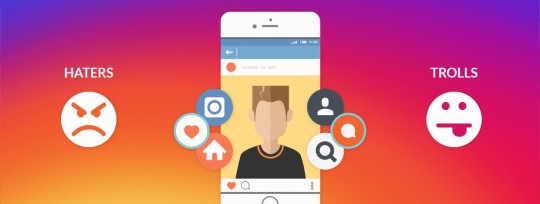
Although trolling is seen as the lighter, less harmful version of online hate speeches, they are at times taken seriously by authorities, such as in the case of Sean Duffy, a 25 year-old who was imprisoned for 18 weeks in the U.K for commenting and mocking the death of two teenagers on a tribute page on Facebook – which brings us to the work of Whitney Phillips centering around trolls targeting online memorial sites.
Phillips suggested that despite popular belief that these type of trolls are heartless beings bombarding mourners with offensive insults, there is another side to the story. She stated that these trolling practices are predominantly targeted at “grief tourists”; people who aren’t actually related to whoever is being mourned over and are simply joining in on the “fun” (technically grief) of mourning over the deceased, thus proposing that trolling “grief tourists” is a righteous action taken against those clouding tribute or memorial sites with insincere grief (Sherpherd et. al 2015).

Even so, trolling often causes more harm than good. They not only are pawns used to shift the people’s attention away from rising social issues like sexism, racism, homophobia and others, they are also huge contributors to the normalization of online hate and harassment by legitimizing hate speech – which is related to an individual’s esteem need to exist, to be (Sherpherd et. al 2015). Those who assume the identity of a hater are people who struggle to exist online and have resorted to lowly means like hate-advocating on social media in their journey to achieve online relevance and significance.
And this is where social media comes in and joins the party because as of today, we can’t have one without the other; where social media goes, online hate speech follows.
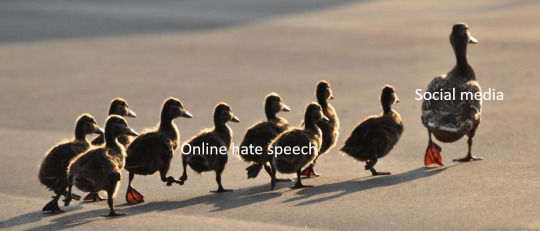
But why is social media so closely related to hate?
Well, this has a lot to do with social media sites’ open-to-all infrastructure and the liberal ideal of freedom of expression. Unregulated online spaces are the unguarded soil that let the idea of freedom of speech grow and blossom into what we know today as hate speech (Sherpherd et. al 2015). As the limits of hate speech have always been ill-defined on social media platforms, to participate in hate speech and to get away with it scot-free is like a walk in the park – maybe even easier – which gave rise to the widespread participation in online hate speech.
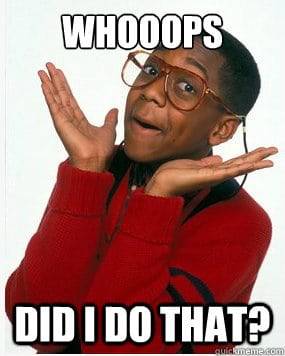
However, it is unfair to say that social media created hate speech because this would imply that people have never intentionally offended or insulted others before social media came along, which we know is untrue. Hate has always been around. It was here in the form of racism against African-Americans in the 1950s, it was here in the form of transphobia when Masha P. Johnson was found dead in the Hudson River in 1992 and it was definitely still here 4 years ago in the form of hashtag-turned-hate-campaign #GamerGate. If anything, the actions of people online are a mere reflection of their actions offline. Take #GamerGate for example:
Although it was originally stated to be a plight for gaming ethics, further understanding showed that it is actually a backlash and hate campaign against the increasing presence and participation of women in the gaming industry which is perceived to be a change from pre-(s)existing cultural norms (Sherpherd et. al 2015). In simpler words, men felt that women were threatening their male power and privilege in games. Feeling offended, they organized a campaign to show the rest of the world that men are the “true” gamers – depicting how sexist and misogynistic the gaming culture AND the people part of that community are, who are probably as sexist as they are online and offline.
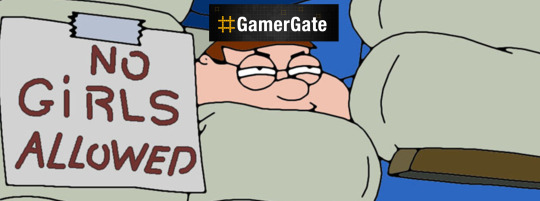
And is anyone doing anything about all this hate?
Frankly....no, not really. There have been efforts (as there always are) from social media management companies: The Black Lives Matter Facebook group – a target of malicious, hate-fueled comments – has reached an agreement with Facebook to shield certain pages, meaning flagged hate speech will reach the chain of command more quickly; Twitter representatives have responded to online abuse against women by promising to collaborate with the Women, Action and the Media organization while its own CEO also personally apologized for the company’s prior inadequate action regarding women abuse online (Shepherd et. al 2015).
But, how effective are these actions against the persistent spreading of hate online? Especially when these companies practice the very deeply embedded victim-blaming culture and understand that to them, hate online is more of a profitable development than a problem; which is why alternative interventions are much needed.
However, social media platforms responsible for hosting these abuse are not the ones advocating and developing plans to mitigate online hate. Unfortunately, this burden falls yet again on the shoulders of the victims and the marginalized because policies created and implemented by the non-diverse workforce in tech industries – made up mostly by people not part of the marginalized groups – will not do much nor will they do nearly enough in protecting people against online abuse, hence why the marginalized are forced to take matters into their own hands in fighting against online hate and abuse.
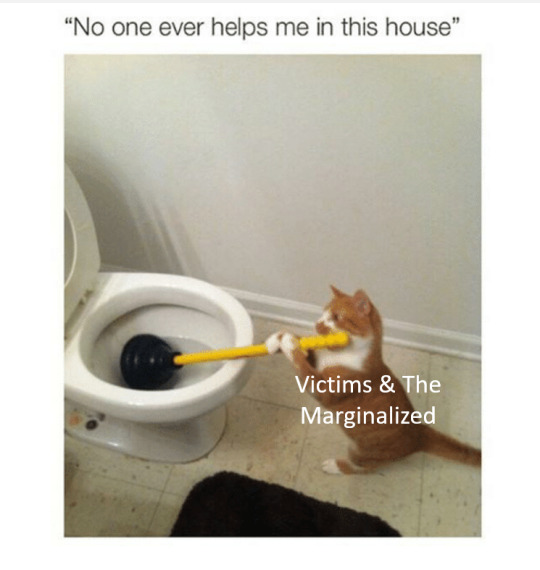
In the face of online wars of hate and trolling, social media’s affordances are the key used to open doors to the facilitation of hate speech and organization of hate-driven collective movements against the oppressed and marginalized groups both in online and offline societies. Thus, to properly combat this issue, I believe that a mix of corporate technological policy, legislative solutions and an understanding of the underlying online and offline culture is needed to develop a long-term fix for a longstanding problem.
References
Sherpherd, T, Harvey, A, Jordan, T, Srauy, A & Miltner, K 2015, ‘Histories of hating’, Social Media + Society, 1(2), pp. 1 - 10, 4.
1 note
·
View note
Text
online hate and harassment
According to ADL’s newly released survey, despite the seeming blitz of self-regulation from technology companies, online hate and harassment remains at unacceptable levels. With 41% of Americans encountering some form of online hate and harassment, being a victim online has become a common experience —and that experience does not appear to be improving.

0 notes
Text
Karan Johar returns to Instagram after two months on Independence Day.

Following two months, movie producer Karan Johar came back to Instagram with an Independence Day post. Karan had avoided posting on Instagram since the downfall of Bollywood entertainer Sushant Singh Rajput on June 14. Karan took to his Instagram feed and shared a picture of the tricolor and stated, "To our incredible nation….a mother lode of culture, legacy and history…. #happyindependenceday … JAI HIND." Karan has confined the remark area on his posts. For the ignorant, Karan Johar was forced to bear trolling, loathe messages and misuses post the downfall of Sushant Singh Rajput. Devotees of the late entertainer have been focusing on Karan Johar for supposedly advancing nepotism in the entertainment world and sidelining outcasts. A few other star kids including Alia Bhatt have likewise been confronting on the web detest from online life trolls. On the day Sushant died, Karan imparted an image of the two to a note communicating lament. "I reprimand myself for not being in contact with you for the past year….. I have felt now and again like you may have required individuals to share your life with…but by one way or another I never followed up on that feeling…will never commit that error again…we live in fiery and loud yet at the same time disconnected occasions …a few of us capitulate to these quiets and go within…we need to make connections as well as continually support them….Sushants Read the full article
#bollywood#Features#IndependenceDay#IndependenceDay2020#IndependenceDayPost#karanjohar#KaranJoharInstagram#KaranJohartrolling#nepotism#NepotisminBollywood#Onlinehate#Socialmediatrolling#SushantSinghRajputandKaranJohar
0 notes
Link
29 February 2020
0 notes
Text
CARNELIAN💥TUTORIAL On Healing Crystals🙏প্রশিক্ষণ📝प्रशिक्षण👼Day-4⭐Reiki Grandmaster 20💕Rumeli
#reikihealing #grandmaster #reiki #chakracleansing #reikitraining #distancehealing #onlinehealing #cleansingspace #cleansing Read the full article
0 notes
Text
Digital Citizenship: Trolling & Social Media Conflict
One of the biggest downsides of social media is the online trolling or social media conflict. I’m sure most of you are familiar with the term trolling but in case you are not then the direct definition is "the act of leaving an insulting message on the internet in order to annoy someone.” (Cambridge University Press, 2019) Trolling has become a major issue in our society, from celebrities getting trolled to more serious issues like children who go face cyberbullying.

Looking at the less serious and slightly funnier version of trolling, I think it is only right to use Chrissy Teigen as an example. She is known to have absolutely no filter on her social media platforms especially on Twitter, as you can see below.



Another and a very talked about example that shows how much impact social media conflict can have and how fast it can have an impact is the Jordyn Woods scandal with Tristan Thompson.

Jordyn expressed the backlash she got saying it went so far that her mom and siblings feared the public and could not even leave their home. It is so easy to attack a single person online and more so for a whole group of people doing it.
#trolling#internettroll#socialmediaconflic#socialmedia#cyberbullying#mediacommunities#chrissyteigen#jordynwoods#digital comunitie#onlinehate
0 notes
Video
Fight online hate... #trolling #onlinehate #catfishing #outing #harassment #exclusion #onlinesafety #takeastand #networkexplosion #socialmedia #greenbeetlebranding #brandingstrategy #tips (at Network Explosion)
#trolling#catfishing#brandingstrategy#takeastand#onlinehate#exclusion#harassment#networkexplosion#greenbeetlebranding#tips#outing#onlinesafety#socialmedia
1 note
·
View note